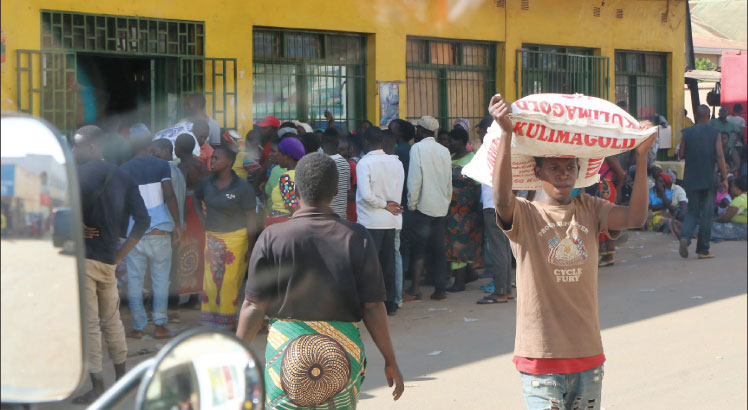MW remains hungry after blowing nearly K1tn
Despite taxpayers injecting K863.9 billion in farm subsidies over the past 15 years, Malawi remains categorised as a serious level hunger country.
The classification is according to the 2022 Global Hunger Index Annual Report while the figure invested is based on our analysis of government spending on Farm Input Subsidy Programme (Fisp) and Affordable Inputs Programme (AIP).

According to the report, Malawi is ranked 87th out of 121 countries with a score of 20.7.
Countries with a score of below 9.9 are put in a low level of hunger while those with scores between 10.0 and 19.9 are put in a moderate level of hunger.
Those with a score of between 20.0 and 34.9 are classified as being in a serious level of hunger while those with a score of between 35.0 and 49.9 are in an alarming situation.
Countries that score above 50.0 are said to be in an extremely alarming level of hunger. Over the 15 years of subsidies, Malawi has glided within the ranges of 20.0 to just over 50.
Yet, the country has over the same period injected K442.3 billion into Fisp and K441.6 billion in AIP to end hunger at household and national levels.
Agriculture expert Tamani Nkhono Mvula blamed the situation on the country’s lack of innovation beyond subsidies.
He also argued that money invested in the subsidies over the years has not addressed the country’s hunger.
He said: “We are investing a lot in fertiliser and seed, but the issue of productivity does not end there. There are a lot of factors we need to consider.”
Nkhono Mvula highlighted the need, for example, to invest in science and technology to come up with new varieties that can withstand climate change, which he described as a major hindrance to crop and animal productivity.
He further said research is another important area with potential to maximise productivity.
“If we do not invest in science and technology or do research, Malawi will forever remain a Nkhono Mvula.food insecurity country,” said
On the contrary, University of Malawi associate professor of economics Winford Masanjala argued on Thursday that subsidies are a panacea to the country’s hunger situation.
In his public lecture titled ‘Can Malawi Sunset the Fertiliser Subsidy Programme,’ Masanjala said ending the farm subsidies would worsen hunger.
But public policy expert Boniface Chibwana contested Masanjala’s views, urging government to do away with subsidies and focus on agriculture commercialisation.
Chibwana, who is Catholic Commission for Justice and Peace national coordinator, stressed the need for transformative policies and decisive leadership to deal with hunger.
“We need a 10-year-plan to deal with the issue of food security in Malawi. Seasonal investments like AIP are prone to administrative abuses,” he said.
Minister of Agriculture Sam Kawale could not be reached for comment despite numerous attempts.
International Food Policy Research Institute (Ifpri) senior researcher Todd Benson in a 2021 book titled Disentangling Food Security from Subsistence Agriculture in Malawi observed that an average of 1.8 million or 12.4 percent of the population remains in need of relief food annually despite investments in subsidies.
He argued that the success of maize production programmes is dependent on good rains and that the burden they impose on the public budget is immense.
Similarly, in a joint analysis of the 2021/22 National Budget, the Economics Association of Malawi, Lilongwe University of Agriculture and Natural Resources and Oxfam, questioned the rationale behind the continued allocation of huge resources to input subsidies to achieve food security and then buy relief maize for the same beneficiaries during the lean period.





